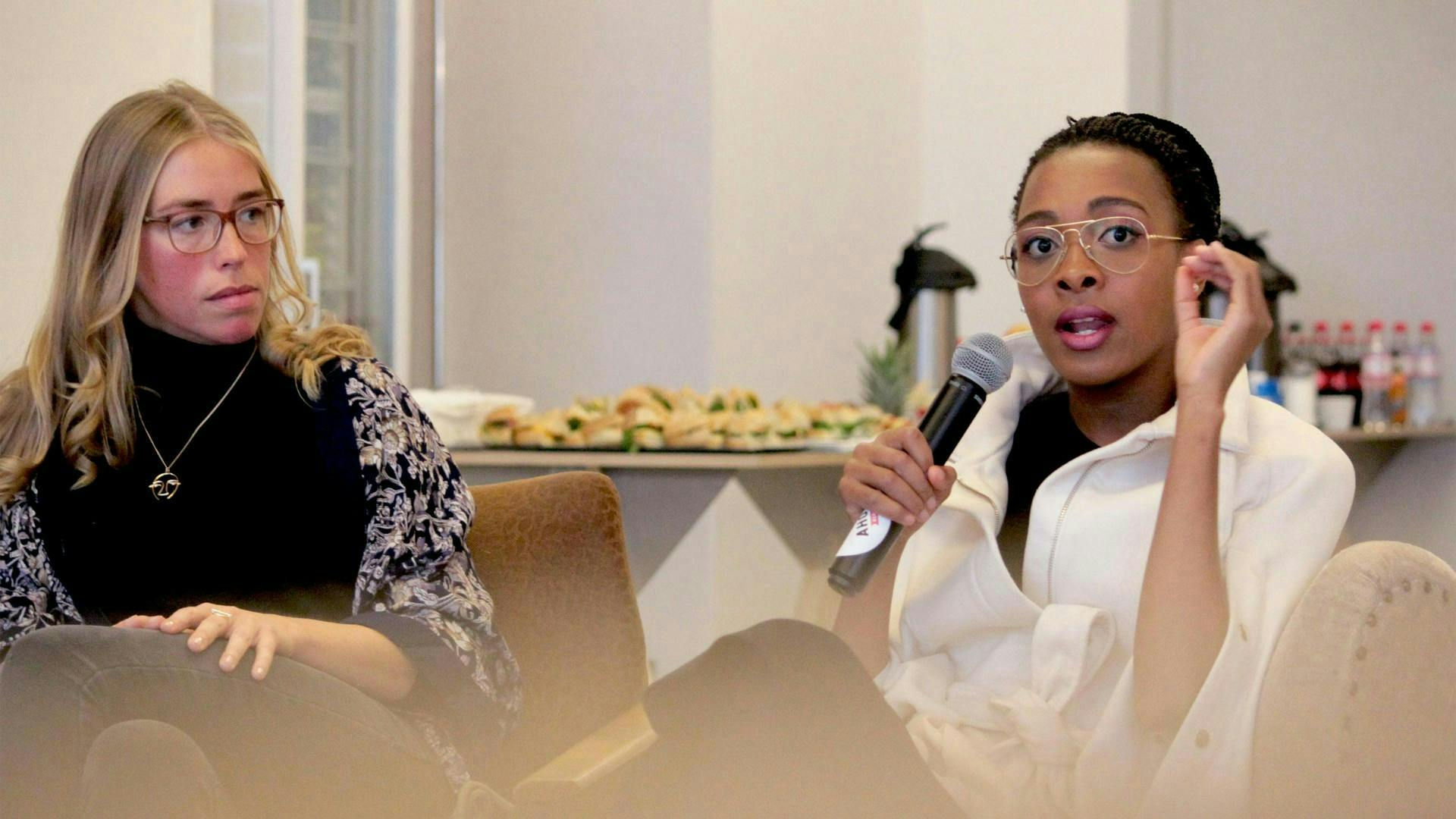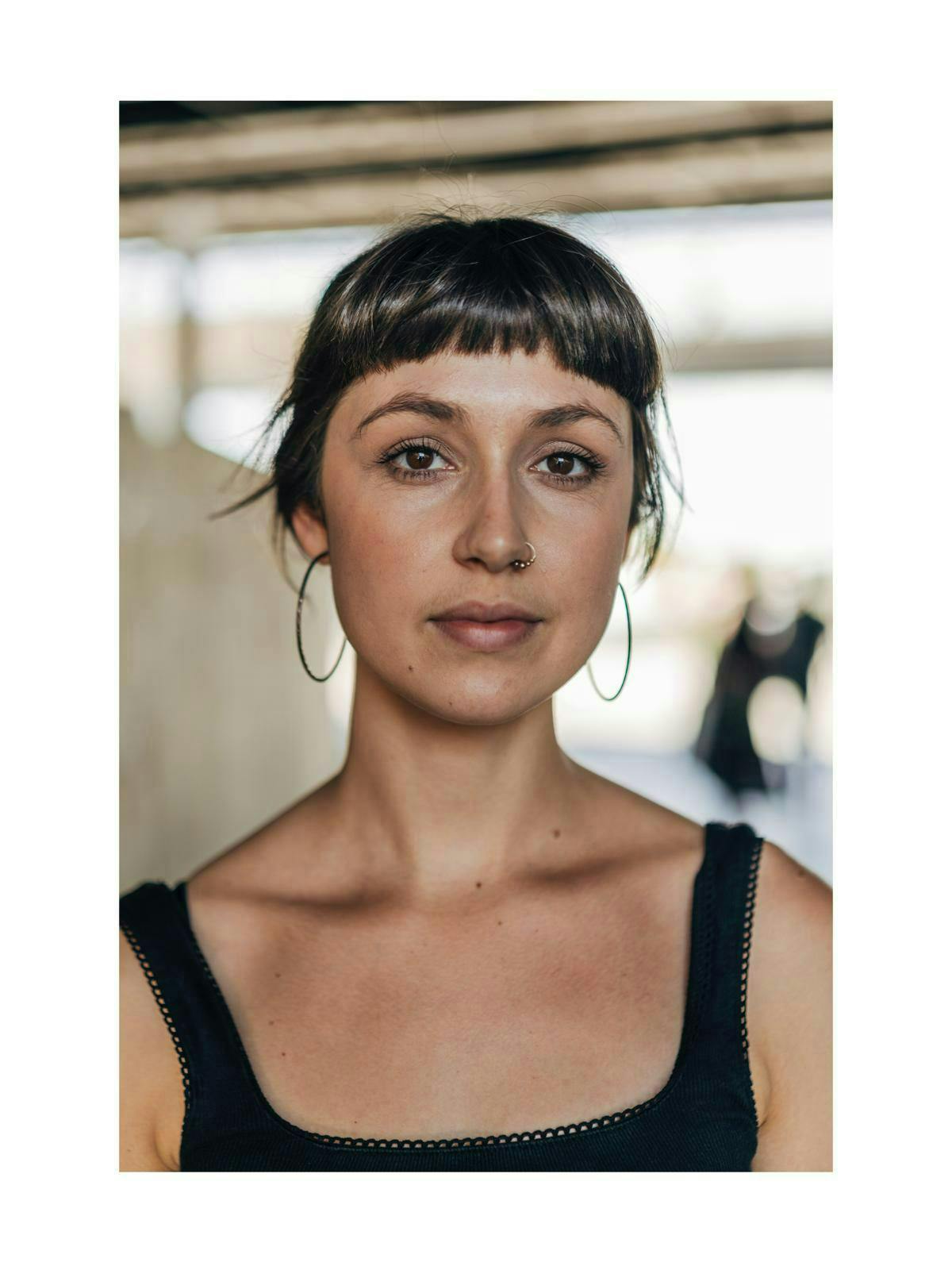‘Females have to invite females’: four entrepreneurs weigh in on Berlin’s startup ecosystem
ast week, Startup Guide and SAP Next-Gen hosted a panel discussion with four founders who shared their experiences as women entrepreneurs in Berlin’s startup scene. Here’s a recap on the main points raised throughout the discussion.
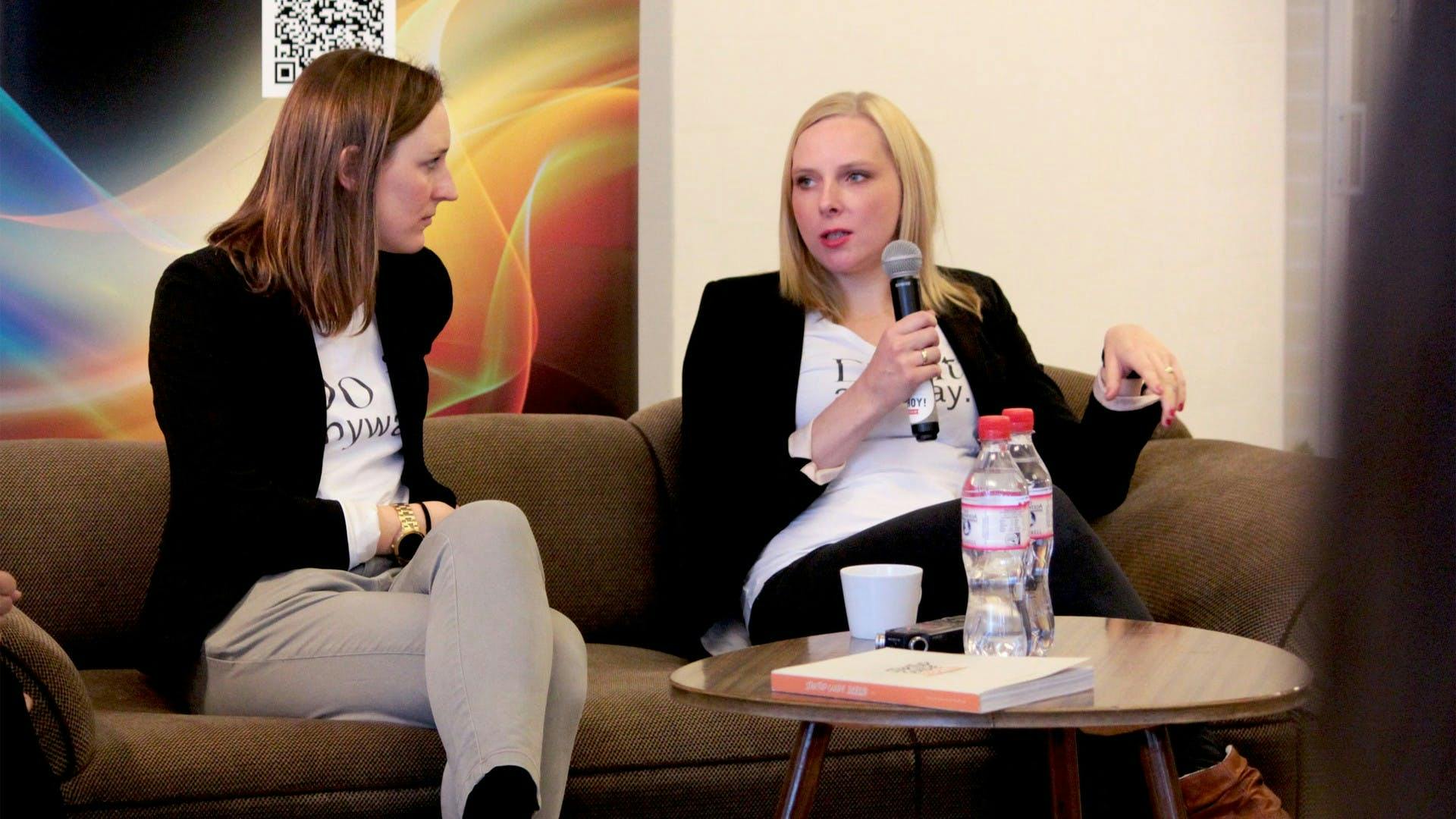
Cofounders of CoWomen, Sara-Marie Wiechmann and Hannah Dahl. Photo: Lisa Below
It’s no secret that women are significantly underrepresented in startup scenes worldwide. Less than one in five startup founders across the world are launched by women, according to a study last year by CrunchBase.
The lack of women in entrepreneurship across global ecosystems is a problem that needs to be addressed in Berlin’s startup community too, according to the panelists.
The pressure is really high. As a woman, you only have one shot to kill it.
On the morning of Thursday, November 22nd at coworking space Ahoy! Berlin, young women and students interested in starting up a business came together to hear the insights and experiences shared by the founders.
The panel was moderated by editor at Startup Guide, Shelley Pascual, who took questions from the audience about halfway through the discussion. At the end of the talk, some event attendees let Startup Guide team members know that they found it to be insightful.
The panelists
Sara-Marie Wiechmann and Hannah Dahl are cofounders of CoWomen, a community and coworking space for women.
Lethabo Motsoaledi is cofounder and CTO of voyc.ai, a user research management software company which supports companies by scaling their user research process.
Carolin Lessoued is cofounder and CEO of Openers, a firm that helps connect, grow and empower technology companies through conversation.
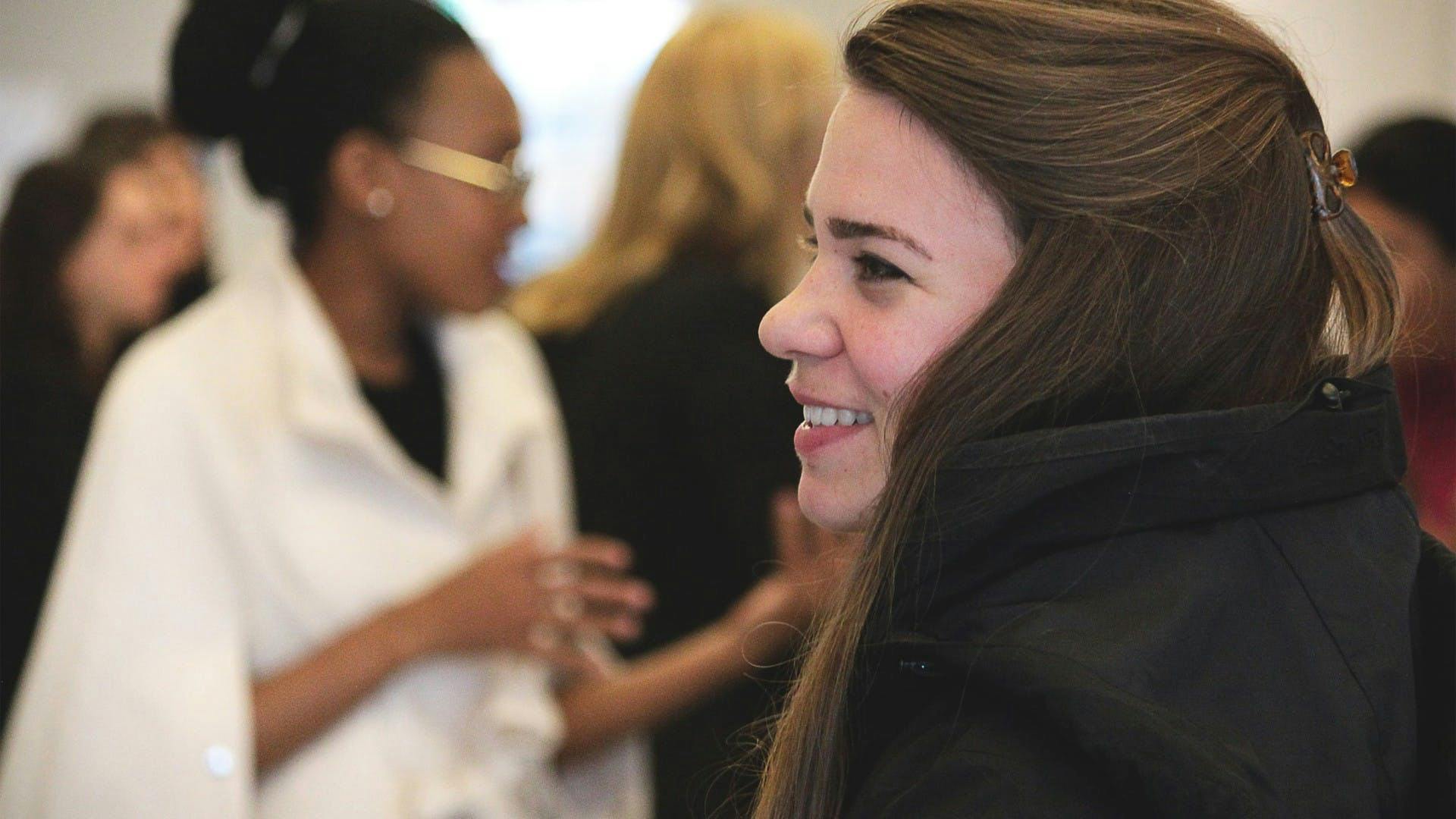
An event attendee. Photo: Lisa Below
We know worldwide that only a fifth of founders are women. Does this statistic reflect your own experience as a female founder in Berlin?
Sara: “The share of female founders in Berlin is really small. Recently, two women said to me that the culture and startup scene in Berlin is from the 1950s.”
Hannah: The recent Deutscher Startup Monitor, a report that examines startup scenes in Germany, found that only 13 to 15 percent of founders are women.
For Lethabo, being a female founder in a “world dominated by males” means that she cannot afford to make any mistakes. “The pressure is really high. As a woman, you only have one shot to kill it.”
As CTO of a technology company, Lethabo often finds herself as the only woman in a room full of men. However, she has felt welcomed by the startup scene since moving to Berlin a few months ago: “I haven't been here long, but it seems like there is no additional burden of being female."
Carolin started working in the Berlin startup scene almost twelve years ago at the intersection of music and tech, where there were very few women at all. In her opinion, the landscape for female founders has improved a lot since then.
"I'm not a fan of cliche bashing and saying that there are no women in the startup scene,” she said, adding that opportunities for women in Berlin have grown significantly since she first started out.
Could you share some examples of challenges encountered throughout your entrepreneurial journey, and how you overcame them?
“The lowest point for me was when we ran out of money,” Lethabo said, adding that one of the ways her company was able to operate without a constant flow of cash included offering a consultancy service.
For Lethabo, in instances where you need help, it is important to utilize your network since “someone that you need is only an email away.”
For Carolin, one of the challenges that Openers faced was striking the right balance of people in their team. At one point during the company’s journey, the team was 80 percent women.
“You start to realize that you all think the same and act the same, and that little progress is being made,” Carolin said, adding that the whole “cultural experience of the company” improved when they balanced the number of males and females working within their team.
Lethabo pointed out that it’s important to have diversity within a company, as you always need “differing perspectives on whatever problem you are trying to solve.”
Sara said that when it comes to finding solutions for issues that arise within companies, it is important to reflect on past actions.
“At CoWomen, we take the time to sit together and do team-building. It’s important that you open up the space to discuss why things went wrong, what you expect from each other, and how you can overcome the difficulties.”
As a female, how important is it to have a (woman) cofounder?
Carolin: “For me as a founder, it was really important to have someone on my side, not because I need help, but because every idea needs support.” According to Carolin, whether you are a male or female founder, it is important to have someone to share the responsibilities with.
“When you have a cofounder, you’re married basically,” Hannah said, adding that being “clear about your company’s mission” is especially important for when you are making decisions together.
I've been with the same cofounder for four different startups and while our ideas kept changing and evolving, what remained constant was what we believed in.
The panelists largely agreed that startups fail for two key reasons: running out of money and cofounder fallouts. Having a cofounder that shares your vision is consequently integral to your company’s survival, according to Lethabo.
"I've been with the same cofounder for four different startups and while our ideas kept changing and evolving, what remained constant was what we believed in,” she said.
What is the best way to start looking for funding?
Sarah: “I don’t think you necessarily have to look for funding. The important thing is to get your idea tested, not just with your friends, but with other people out there. Funding comes after that.”
Carolin said it’s possible to get started without external funding sources. Twelve years ago, Openers started out life as three people, a Macbook and a small office, and was bootstrapped with only a small amount of money. “Just throw yourself in, and money will follow,” she said.
For Hannah, “fast money never works.” The funding landscape in any ecosystem can be precarious, and it’s important to be selective when it comes to accepting money from investors.
According to Lethabo, investors come prepared with a long list of rules and regulations which is why it is imperative to “always check the fine print.”
Lethabo added that it is essential to have a way of “sustaining yourself” monetarily throughout the process of building a company, highlighting that in the beginning, you might not have a source of revenue. She suggests having a part-time job or staying with your current employer while you validate your business on the side.
Five years from now, how will Berlin’s startup ecosystem have changed? What could this mean for female founders?
Sarah: “I'm positive women will take on more of a role not just in the startup scene, but in positions of responsibility.”
Hannah added that she is looking forward to creating more opportunities for “sisterhood” at CoWomen.
Carolin said that the situation for women in the startup scene is improving by the day, but it’s still “important to be role models to each other.” She added that education about opportunities for women in the employment landscape should start at an earlier stage, and not just at university.
Lethabo: Women can help each other occupy more prominent positions in the startup scene by welcoming each other into their own networks. “Females have to invite other females. This is the way we can change the dynamic in the workplace and open more doors for women.”
Main photo of Carolin Lessoued and Lethabo Motsoaledi by Lisa Below
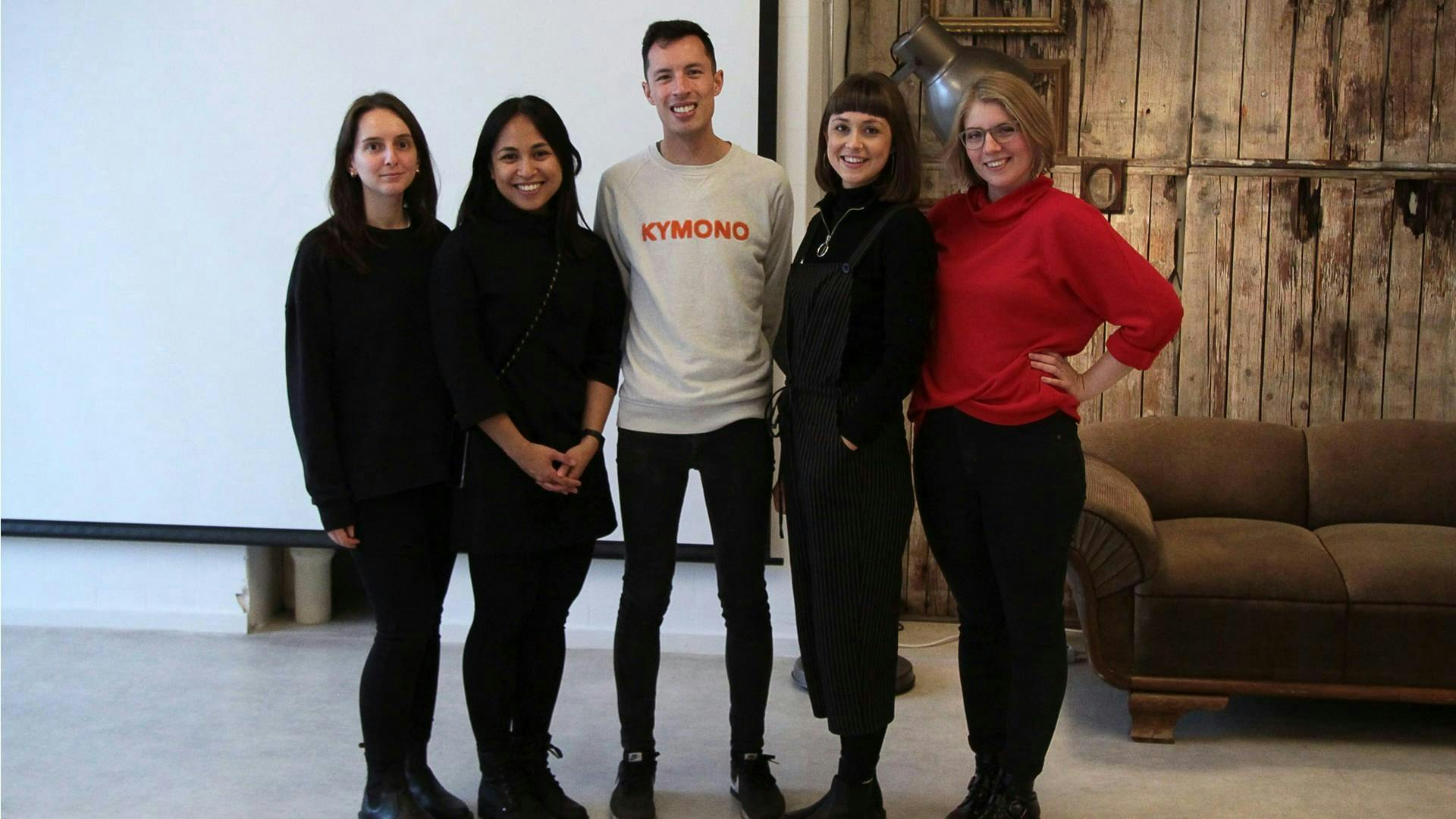
Startup Guide team members (left to right) İrem Topçuoğlu, Shelley Pascual, Logan Ouellette, Miriam Partington and SAP Next-Gen's Lisa Below. Photo: Andre Biener
